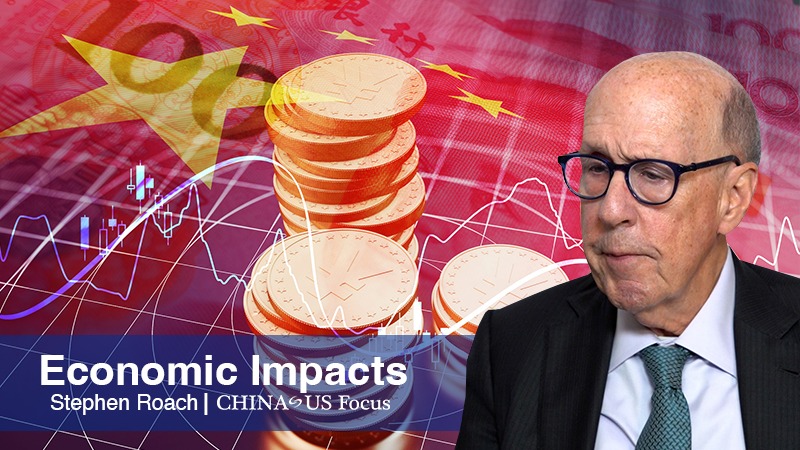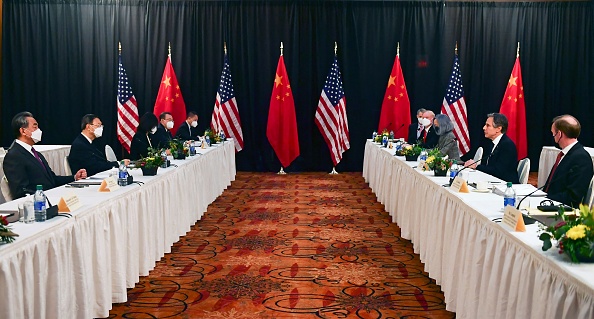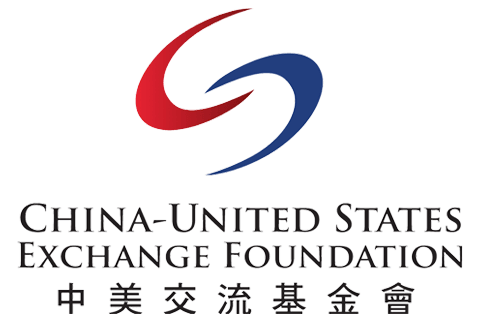
Dear Focus Reader,
As millions of people across China travel home this week to spend Chinese New Year with their families, questions abound about whether the country will be able to shake off an economic slump in the upcoming Year of the Dragon.
In recent months, the Chinese economy has faced several challenges, ranging from deflation and a decline in foreign investments to youth unemployment and a growing debt burden. But one of the most critical issues has been the downturn in the real estate sector.
The real estate challenges stem from years of relying heavily on housing development to drive economic growth, which resulted in heavy borrowing and increased debt. Last month, a Hong Kong court ordered the controlled liquidation of China Evergrande, which had become the world's most indebted property developer.
The housing market decline, which began in 2021, is expected to reach its lowest point around 2026, according to the International Monetary Fund, which predicts that the sector will shrink by 45% at best and 65% at worst. Given that housing amounts to an estimated 20% of China's economy, this could have significant economic impact.
To counter these challenges and encourage economic growth, Chinese leader Xi Jinping has called for efforts to "accelerate the development of new productive forces and firmly promote high-quality development." While there may be more short-term economic pain due to the debt unwinding and drop in housing prices, many experts believe this could be healthy for China's economy in the long run. There are some signs of optimism already. Government efforts to stabilize the falling stock market led to Chinese stocks capping off their best week in more than a year on Thursday. Measures included replacing the market regulator and wider trading curbs, as well as state buying of major bank stocks. Whether this positive trend continues or stalls, however, will be seen after the Spring Festival holidays, when China's markets reopen.
Meanwhile, stay up to date on the latest international developments by catching up on our latest Focus content, including topics on China's economy, AI cooperation, and tensions in the Red Sea.
We wish you a safe and prosperous Year of the Dragon!
"Preserving stability relies on the credibility of global powers in striking a subtle equilibrium. Europe, a potential pivotal player, must carefully consider moves to uphold credibility on the global stage and maintain a coherent and principled foreign policy."
The number of years the security-cooperation agreement signed by British Prime Minister Rishi Sunak and Ukrainian President Volodymyr Zelenskyy will be in place.
Learn more in "A Revealing UK-Ukraine Security Agreement," by Jade Wong, a senior fellow at the Gordon & Leon Institute.
Chinese New Year 2024
Watch VideoIn our Focus Insights section, we shared an interview with Stephen Roach, a Senior Fellow at the Jackson Institute for Global Affairs at Yale University, who delves into the repercussions of tensions between China and the U.S. on the economic growth of both nations and the global economy.
We want to hear from you:
Do you agree with Stephen Roach's assessment that political rhetoric drives false narratives between China and the U.S.? What measures do you think could mitigate the collateral damage on the global economy caused by trade and economic tensions between the U.S. and China?
Submit your thoughts to USeditor@chinausfocus.com for a chance to be featured in next week's Focus This Week.
useditor@chinausfocus.com for more info.
Prepared by China-US Focus editorial teams in Hong Kong and New York, this weekly newsletter offers you snap shots of latest trends and developments emerging from China and the U.S. every week. It is a community space to exchange thoughts and ideas about the China-U.S. relationship and beyond.
- 2024-02-02 Focus This Week: Working Groups
- 2024-01-26 Focus This Week: Laying the Groundwork
- 2024-01-19 Focus This Week: A Charm Offensive
- 2024-01-12 Focus This Week: Global Impacts
- 2024-01-05 Focus This Week: New Prospects
- 2023-12-21 Focus This Week: Ending on a High Note
- 2023-12-15 Focus This Week: Economic Review
- 2023-12-08 Focus This Week: Climate Talks
- 2023-12-01 Focus This Week: Looking Forward
- 2023-11-22 Focus This Week: A Temporary Ceasefire
- 2023-11-17 Focus This Week: An Anticipated Meeting
- 2023-11-11 Focus This Week: Change and Progress
- 2023-11-03 Focus This Week: Anticipating APEC
- 2023-10-27 Focus This Week: Diplomatic Strides
- 2023-10-20 Focus This Week: De-escalation
- 2023-10-13 Focus This Week: Seeking Peace
- 2023-10-06 Focus This Week: Summit Speculations
- 2023-09-29 Focus This Week: Paving the Way
- 2023-09-22 Focus This Week: Climate Action
- 2023-09-15 Focus This Week: Global Gatherings





